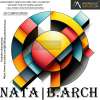GATE CS and IT Syllabus:
ICR Education services Provides GATE CSE Study material and sample papers with classes for GATE Examination. Call 09302127874 or 09016166956
Computer Science and Information Technology Syllabus Details:
Section1: Engineering Mathematics Discrete Mathematics: Propositional and first order logic. Sets, relations, functions, partial orders and lattices. Groups. Graphs: connectivity, matching, coloring. Combinatorics: counting, recurrence relations, generating functions. Linear Algebra: Matrices, determinants, system of linear equations, eigenvalues and eigenvectors, LU decomposition. Calculus: Limits, continuity and differentiability. Maxima and minima. Mean value theorem. Integration. Probability: Random variables. Uniform, normal, exponential, poisson and binomial distributions. Mean, median, mode and standard deviation. Conditional probability and Bayes theorem. Computer Science and Information Technology
Section 2: Digital Logic Boolean algebra. Combinational and sequential circuits. Minimization. Number representations and computer arithmetic (fixed and floating point).
Section 3: Computer Organization and Architecture Machine instructions and addressing modes. ALU, data‐path and control unit. Instruction pipelining. Memory hierarchy: cache, main memory and secondary storage; I/O interface (interrupt and DMA mode).
Section 4: Programming and Data Structures Programming in C. Recursion. Arrays, stacks, queues, linked lists, trees, binary search trees, binary heaps, graphs.
Section 5: Algorithms Searching, sorting, hashing. Asymptotic worst case time and space complexity. Algorithm design techniques: greedy, dynamic programming and divide‐and‐conquer. Graph search, minimum spanning trees, shortest paths.
Section 6: Theory of Computation Regular expressions and finite automata. Context-free grammars and push-down automata. Regular and contex-free languages, pumping lemma. Turing machines and undecidability.
Section 7: Compiler Design Lexical analysis, parsing, syntax-directed translation. Runtime environments. Intermediate code generation.
Section 8: Operating System Processes, threads, inter‐process communication, concurrency and synchronization. Deadlock. CPU scheduling. Memory management and virtual memory. File systems.
Section 9: Databases ER‐model. Relational model: relational algebra, tuple calculus, SQL. Integrity constraints, normal forms. File organization, indexing (e.g., B and B+ trees). Transactions and concurrency control.
Section 10: Computer Networks Concept of layering. LAN technologies (Ethernet). Flow and error control techniques, switching. IPv4/IPv6, routers and routing algorithms (distance vector, link state). TCP/UDP and sockets, congestion control. Application layer protocols (DNS, SMTP, POP, FTP, HTTP). Basics of Wi-Fi. Network security: authentication, basics of public key and private key cryptography, digital signatures and certificates, firewalls.
(GATE Computer Science and Information Technology Exam Syllabus, GATE 2019 Computer Science and Information Technology Exam Syllabus, GATE 2020 Computer Science and Information Technology Exam Syllabus, GATE 2021 Computer Science and Information Technology Exam Syllabus, Syllabus for GATE 2019 Computer Science and Information Technology, Syllabus for GATE 2020 Computer Science and Information Technology, Syllabus for GATE 2021 Computer Science and Information Technology, Syllabus for GATE 2022 Computer Science and Information Technology, GATE Exam, GATE Exam syllabus for Computer Science and Information Technology )


